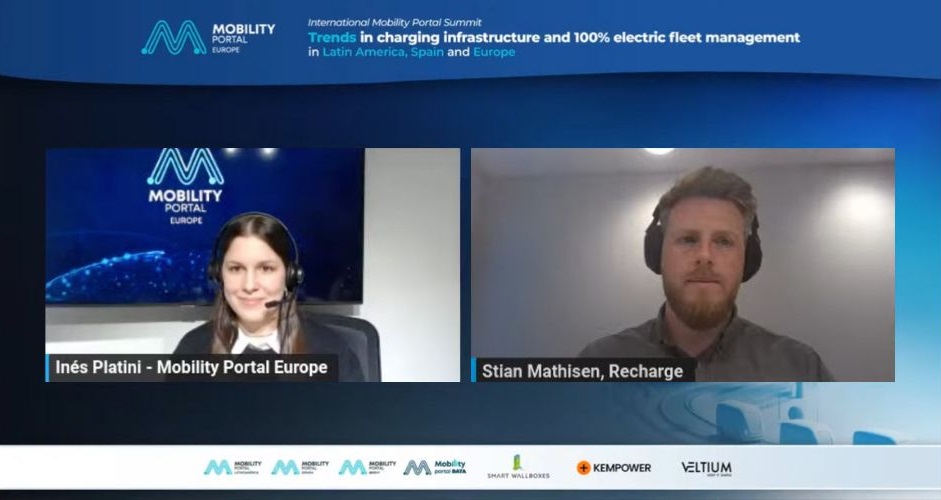Currently, Europe faces a significant challenge hindering sustainable mobility progress: grid congestion due to energy demand.
Here’s where Recharge steps in as a charging point operator in the Nordic countries — namely Norway, Sweden, Finland, and Denmark — the firm has been building its charging network for over ten years.

Stian Mathisen, Head of Corporate Communications, Public Affairs, and Sustainability at Recharge, comments to Mobility Portal Europe: “We’re now working on how to make the charging station something that can stabilize and provide flexibility to the grid.”
“This will move us from being just a charging point operator to becoming an energy company, as we will support grid operators,” he further elaborates.
To achieve this, as Recharge explains, they need market mechanisms enabling them to provide such support.
What does this mean? They need to be able to sell energy back to local grid operators (DSOs) and national-level transmission system operators (TSOs) in the region.
In this regard, the company representative mentions conflicts in numerous locations across the Nordic countries where the grid is essentially saturated.
Hence, they are compelled to wait for several years before acquiring the energy needed to upgrade an existing site or build a new one.
It is worth mentioning that there is an increase in renewable energy generation. In recent years, wind and solar energy production has significantly grown in the region.
However, the intermittent nature of these energy sources and challenges in their storage lead to imbalances.
Furthermore, electricity demand is rising due to population and economic growth in the Nordic countries.
This increase adds additional pressure to an already overloaded grid, increasing the risk of power interruptions.
Another crucial factor is limited network infrastructure. The existing infrastructure has not evolved at the same pace as the growth in electricity generation and demand.
This has caused bottlenecks, making it difficult to distribute electricity efficiently and increasing vulnerability to power cuts.
Trends in the Nordic Countries according to Recharge
Recharge, operating in the northern European nations, witnesses the high level that the market there possesses compared to other parts of the world.
In fact, they are primarily known for the high adoption rates of electric vehicles (EVs).
In Norway, for instance, in April 89.4 per cent of new car sales were electric; in Denmark, it was 42.9 per cent, and in Sweden, 30.9 per cent.
Similarly, albeit to a lesser but still significant extent, Iceland recorded 11.5 per cent of EV sales in the market, and Finland, 27.2 per cent.
Moreover, Mathisen notes another trend in these territories.
“What is happening now has less to do with ‘land grabbing’ situations as seen in many countries. It is more about optimizing already built locations, ” he asserts.
Mathisen continues, “Part of the issue is that network companies here are not yet sufficiently digital, so they need to invest in digitalization and improve their software to communicate and cooperate with us, enabling us to provide the flexibility and support to the grid that we aim for.”
It is worth mentioning that, last year, the corporation delivered approximately 80 gigawatt-hours of energy over 3.5 million charging sessions.
Furthermore, their current focus is on constructing almost exclusively high-power chargers, up to 400 kilowatts.
Below is Recharge’s participation in the International Mobility Portal Summit:








